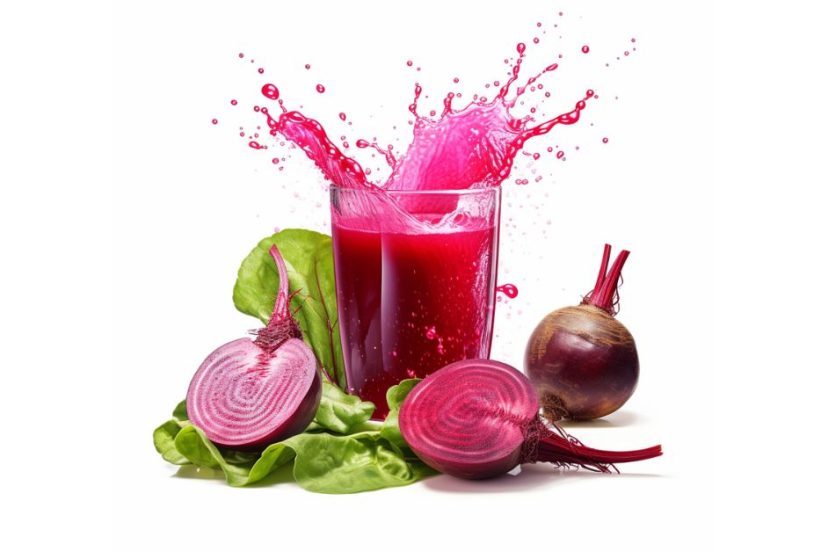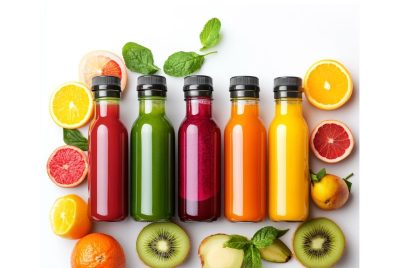Is Beet Juice Bad for Your Kidneys? Debunking Myths and Understanding the Facts
As an avid juicing enthusiast, I understand the curiosity and concern surrounding the effects of different juices on our health. Among the wide variety of juices available, beet juice has gained significant popularity for its potential health benefits. However, there are questions regarding its impact on kidney health. In this article, we will explore the topic of whether beet juice is bad for your kidneys and provide helpful suggestions based on research and expert opinions.
Understanding the kidneys:
Before delving into the effects of beet juice on kidney health, it’s important to understand the vital role kidneys play in our bodies. The kidneys act as our body’s filtration system, removing waste products and excess fluid from the blood. They help maintain electrolyte balance, regulate blood pressure, and produce hormones that stimulate red blood cell production. Ensuring optimal kidney health is crucial for overall well-being.
Nutritional profile of beet juice:
Beet juice is packed with essential nutrients and powerful antioxidants. It contains vitamins such as vitamin C, folate, and minerals like potassium and manganese. Additionally, beet juice is a rich source of dietary nitrates, which can have beneficial effects on the body. Consuming beet juice in moderation can provide a range of potential health benefits.
Impact of beet juice on kidney health:
Numerous studies have been conducted to understand the effects of beet juice on kidney health. While there are potential benefits associated with beet juice consumption, it’s important to consider individual factors and exercise moderation. Beet juice, when consumed in excessive amounts, may have certain risks that need to be taken into account.
Beet juice and kidney stones:
One concern often raised is whether beet juice can contribute to the formation of kidney stones. It’s true that beets contain oxalates, which are compounds that can combine with calcium to form kidney stones. However, the risk of kidney stone formation from beet juice is generally low, especially when consumed as part of a balanced diet. Maintaining hydration and incorporating other oxalate-rich foods in moderation can help minimize this risk.
Beet juice and blood pressure:
Beet juice has been shown to have positive effects on blood pressure, which is closely linked to kidney health. The naturally occurring nitrates in beet juice can help dilate blood vessels, leading to lowered blood pressure. While this can be beneficial, it’s important to consider individual circumstances, such as existing blood pressure conditions and medication usage. Consulting a healthcare professional is advisable for those with specific concerns.
Beet juice and kidney function:
Some studies suggest that beet juice may have potential benefits for kidney function. The nitrates in beet juice have been shown to improve renal blood flow, which can enhance the kidneys’ ability to filter waste products. However, further research is needed to fully understand the long-term effects of beet juice on kidney function.
Beet juice and kidney disease:
For individuals with kidney disease, dietary considerations play a crucial role. While beet juice can be a part of a kidney-friendly diet, it’s important to monitor potassium levels and consider individual restrictions. Consulting a healthcare provider or a registered dietitian can provide personalized guidance on incorporating beet juice into a kidney disease management plan.
Moderation and individual factors:
Like any food or drink, moderation is key when consuming beet juice. Individual factors such as overall health, medications, and existing conditions can influence how the body responds to beet juice. Paying attention to how your body reacts and seeking professional advice can help determine the optimal amount of beet juice to include in your diet.
Alternative options for kidney health:
While beet juice has potential benefits, it’s essential to adopt a balanced approach to juicing for kidney health. Other foods and drinks, such as cranberry juice, lemon water, and herbal teas, can also support kidney function. Maintaining a well-rounded diet with a variety of nutrient-rich foods is important for overall health and kidney well-being.
Conclusion:
In conclusion, beet juice can be a part of a healthy diet and may offer potential benefits for kidney health. However, it’s crucial to consider individual factors, exercise moderation, and consult healthcare professionals when necessary. Incorporating a variety of foods and drinks that support kidney health can contribute to overall well-being.
FAQs:
- Can beet juice cure kidney disease?
- While beet juice may have some potential benefits for kidney health, it cannot cure kidney disease. It’s important to follow a comprehensive treatment plan prescribed by healthcare professionals for managing kidney disease.
- Is beet juice safe for pregnant women?
- Pregnant women should consult their healthcare provider before adding beet juice or any other dietary changes to their routine. Individual circumstances and medical history should be taken into account.
- How much beet juice should I drink per day?
- The recommended amount of beet juice can vary depending on individual factors. As a general guideline, consuming 8-16 ounces (240-480 ml) of beet juice per day is considered a moderate intake. However, consulting a healthcare professional or a registered dietitian is advisable for personalized recommendations.
- Can beet juice interact with medications?
- Beet juice, like many other foods and drinks, can interact with certain medications. It may affect the absorption or metabolism of some drugs. If you’re taking medications, it’s important to consult your healthcare provider to determine any potential interactions.
- Are there any side effects of consuming beet juice?
- While beet juice is generally safe to consume, excessive intake may lead to temporary changes in urine or stool color due to the presence of pigments in beets. Additionally, some individuals may experience gastrointestinal discomfort or an allergic reaction. If you experience any adverse effects, it’s advisable to consult a healthcare professional.
Other resources
- Beetroot Juice and Exercise Performance: This is a review article from PubMed, a reputable database of scientific literature, that discusses the effects of beetroot juice on exercise performance.




